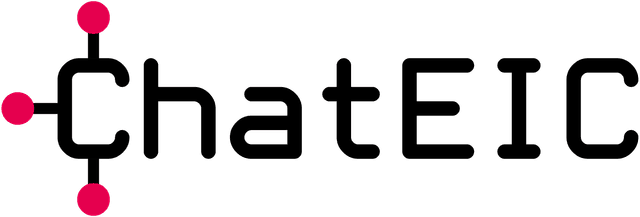
Assessing an EIC Accelerator Applicant for Innovation, Traction and the Team (SME Instrument) - Part 3
Part 1 (Innovation) and Part 2 (Traction) of this article can be found under the provided links.
3. Team
After a professional grant writer or consultant has successfully assessed the innovativeness and traction of a project, an in-depth look at the team should follow to cover the most important bases of a potential EIC Accelerator grant application.
The Implementation part of the official EIC Accelerator template covers the team in great length which means that the team's quality should be clarified ahead of time. The key areas to investigate when identifying the suitability of the team can be summarized as the team's background, the relationships between team members and departments as well as the track record of the company as a whole and their individual team members in particular.
3.1 Team Background
The founding and management team of the prospective EIC Accelerator applicant company should have a strong technical background that is balanced with the commercial expertise needed in order to succeed. The company profile should clearly outline the team's experience, educational background, skills and strengths so that a strong case can be made with respect to the companies suitability to implement and execute the innovation developments.
Having a team which exclusively consists of marketing and communication experts while all technical parts are outsourced would be insufficient while a purely technical team without any commercial members would likewise make it difficult to convince the proposal evaluators and investors.
The team has to be somewhat balanced from a skill-level but it can be more R&D-heavy which makes sense for a DeepTech startup with ongoing development work and limited revenues.
An advisory board is also an important part of a startups development but it should not be the exclusive source of commercial expertise in the company and should only be additional support for an already excellent team. The assessment of the startup's or Small- and Medium-Sized Enterprise's (SME) team should, first and foremost, focus on the key members inside the business and how they are positioned from a skill-perspective.
3.2 Team Relationships
The team has to be investigated based on its individual participants and as a complete unit to make the case as to why the company can succeed. For this purpose, it should be highlighted how the team was formed, how the members are incentivised and their overall commitment to the companies success (ie. commitment is explicitly asked for in the EIC Accelerator template).
It is very common that founders all have a similar background or are all originating from a similar environment which is why close care must be placed into assuring that a broad level of commercial and technical expertise is found in the management team. It should also be assessed how well connected the team is in respect to important stakeholders such as customers, regulators, commercial partners and other relevant parties who will be integral during the commercialisation and scaling process.
The incentives should be analyzed in order to validate the long-term commitment of the team members with special attention to the companies ownership and its future projections in the eyes of additional equity investments and dilution.
A company should have a core team which is committed and avoid having excessive numbers of interns or other low-commitment members such as freelancers or contractors.
3.3 The Team's Track Record
Out of all of the team's most relevant aspects, the track record is still the most important and most looked-for factor. In the end, investors understand that a past track record of success is the best predictor of future success which is why an EIC Accelerator applicant will have to highlight this extensively.
A writer or consultant should carefully assess if the background of the startup is impressive and if they are able to implement an ambitious DeepTech project under the EIC Accelerator.
The evaluators will, in the application and during the pitch interview, carefully investigate the companies past accomplishments such as technology milestones, awards, prizes, secured financing (i.e. seed, angel, VC or grants) and other acknowledgements that have a high barrier to success.
The track record can also extend to the past success of individual team members whereas one of the funders might have successfully scaled the production process as the head engineer of a large company or another founding member was able to found, scale and exit a profitable technology startup. Everything that can be used to highlight the teams track record should be assessed in such a way.
Summary
As the third pillar of the assessment of startups, the team quality can be analysed through the following sub-segments to facilitate a successful EIC Accelerator grant submission:
- 3.1 Team background: Education, industry origin and balanced in-house expertise
- 3.2 Team relationships: Founding team and stakeholder network
- 3.3 Team track record: Past successes
These tips are not only useful for European startups, professional writers, consultants and Small and Medium-Sized Enterprises (SME) but are generally recommended when writing a business plan or investor documents.
Deadlines: Post-Horizon 2020, the EIC Accelerator accepts Step 1 submissions now while the deadlines for the full applications (Step 2) under Horizon Europe are listed below. The Step 1 applications must be submitted weeks in advance of Step 2. The next EIC Accelerator cut-off for Step 2 (full proposal) can be found here. After Brexit, UK companies can still apply to the EIC Accelerator under Horizon Europe albeit with non-dilutive grant applications only - thereby excluding equity-financing. Switzerland has resumed its participation in Horizon Europe and is now eligible for the EIC Accelerator.
EIC Accelerator Step 1 Deadline 2025
Contact: You can reach out to us via this contact form to work with a professional consultant.
AI Grant Writer: ChatEIC is a fully automated EIC Accelerator grant proposal writer: Get it here.
EIC Accelerator: EIC Accelerator delivers flexible funding options including blended finance (€2.5M grant + €0.5M-€10M equity), grant-only (up to €2.5M), or equity-only arrangements for scale-up and market deployment of breakthrough innovations. The initiative targets SMEs, start-ups, and small mid-caps with up to 499 employees. Technology areas include Biotech, Engineering, Artificial Intelligence, Energy, Quantum, Aerospace, Advanced Materials, and Semiconductors. Get Started
EIC Pathfinder: EIC Pathfinder delivers up to €3 million for Open calls and up to €4 million for Challenge-based calls to support early-stage research and development with proof-of-principle validation. The initiative requires research consortia with a minimum of 3 partners from 3 different countries, including universities, research organizations, and SMEs. Primary technology focus areas include Health/Medical, Quantum Technologies, AI, Environmental/Energy, and Advanced Materials. Get Started
EIC Transition: EIC Transition delivers up to €2.5 million in funding to overcome the 'valley of death' gap between laboratory research and market deployment, emphasizing technology maturation and validation. The initiative supports single legal entities or small consortia of 2-5 partners including SMEs, start-ups, spin-offs, and research organizations. Key technology domains include Health/Medical Technologies, Green/Environmental Innovation, Digital/Microelectronics, Quantum Technologies, and AI/Robotics. Get Started
EIC STEP Scale-Up: EIC STEP Scale-Up delivers significant equity investments of €10-30 million for established deep-tech companies prepared for hyper-growth and large-scale expansion. The initiative targets SMEs or small mid-caps with up to 499 employees who have obtained pre-commitment from qualified investors. Primary focus areas include Digital & Deep Tech (Semiconductors, AI, Quantum), Clean Technologies for Net-Zero objectives, and Biotechnologies. Get Started
EIC Pre-Accelerator: EIC Pre-Accelerator represents a pilot initiative delivering €300,000-€500,000 in funding for early-stage deep-tech development and preparation for the EIC Accelerator program. This program is exclusively accessible to single SMEs or small mid-caps from 'Widening countries' to foster regional innovation development. The initiative encompasses deep-tech innovations across physical, biological, and digital domains. Get Started
EIC Advanced Innovation Challenges: EIC Advanced Innovation Challenges represents a new pilot initiative delivering €300,000 (Stage 1) and up to €2.5 million (Stage 2) for breakthrough deep-tech innovations through ARPA-style staged funding mechanisms with integrated demand-side engagement. This initiative targets single entities or small consortia (2-3 partners) including SMEs, start-ups, and research organizations. Primary focus areas include Physical AI for autonomous robotics applications and New Approach Methodologies (NAMs) for animal-free biomedical testing, with TRL 4 entry requirements and demonstrated end-user commitment. Get Started
Eureka Network: The Eureka Network delivers various international collaborative R&D initiatives such as Network Projects, Clusters, Eurostars, Globalstars, and Innowwide, providing funding from €50K to €6.75M per project based on the specific initiative. This network emphasizes market-driven innovation and deep-tech advancement across multiple technology sectors including ICT/Digital, Industrial/Manufacturing, Bio/Medical Technologies, Energy/Environment, Quantum, AI, and Circular Economy. Eligible participants include SMEs, large enterprises, research organizations, universities, and startups, with Eurostars particularly focused on R&D-performing SMEs. Get Started
Eurostars: Eurostars represents a joint EU-Eureka initiative delivering €50K-€500K for international R&D collaboration specifically led by SMEs. The program adopts a bottom-up approach, accepting projects from all technology fields without predefined thematic restrictions. R&D-performing SMEs must lead the consortium and demonstrate significant R&D activities. Get Started
Innovation Partnership: Innovation Partnership enables collaborative innovation between public and private sectors with typical funding of €1-5 million per project. The initiative supports cross-sectoral strategic technologies through public-private partnerships and consortia. Projects concentrate on addressing societal challenges through collaborative innovation approaches. Get Started
Innovation Fund: The EU Innovation Fund delivers substantial funding of €7.5 million to €300 million for large-scale demonstration of innovative low-carbon technologies. The initiative targets clean energy, carbon capture, renewable energy, and energy storage technologies to accelerate the transition to a low-carbon economy. Eligible participants include large companies, consortia, and public entities capable of implementing large-scale demonstration projects. Get Started
Innovate UK: Innovate UK delivers various programs with funding ranging from £25K to £10M depending on the specific initiative, supporting business-led innovation, collaborative R&D, and knowledge transfer. The organization funds projects across all sectors with particular emphasis on emerging technologies and supports UK-based businesses, research organizations, and universities. Programs are designed to drive economic growth through innovation and technology commercialization. Get Started
Industrial Partnership: Industrial Partnership delivers €2-10 million in funding for industrial research and innovation partnerships focusing on manufacturing, industrial technologies, and digital transformation. The initiative supports industrial consortia and research organizations in developing collaborative solutions for industrial challenges. Projects aim to strengthen European industrial competitiveness through strategic partnerships. Get Started
LIFE Programme: The LIFE Programme delivers €1-10 million in funding for environmental protection, climate action, and nature conservation projects across the European Union. The initiative supports environmental technologies, climate adaptation strategies, and biodiversity conservation initiatives. Eligible participants include public authorities, private companies, NGOs, and research institutions working on environmental and climate challenges. Get Started
Neotec: Neotec represents a Spanish initiative delivering €250K-€1M in funding for technology-based business creation and development, supporting the growth of innovative Spanish SMEs and start-ups. The program covers all technology sectors and aims to strengthen Spain's technology ecosystem. Funding is specifically targeted at Spanish technology-based SMEs and start-ups to enhance their competitiveness and market presence. Get Started
Thematic Priorities: EU Thematic Priorities encompass various programs aligned with EU strategic priorities including green transition, digital transformation, health, and security initiatives. Funding amounts vary based on the specific program and call requirements, with projects designed to address key European challenges. Applicant eligibility varies by specific program and call, with different requirements for different thematic areas. Get Started
Any more questions? View the Frequently Asked Questions (FAQ) section.
Want to see all articles? They can be found here.
For Updates: Join this Newsletter!
